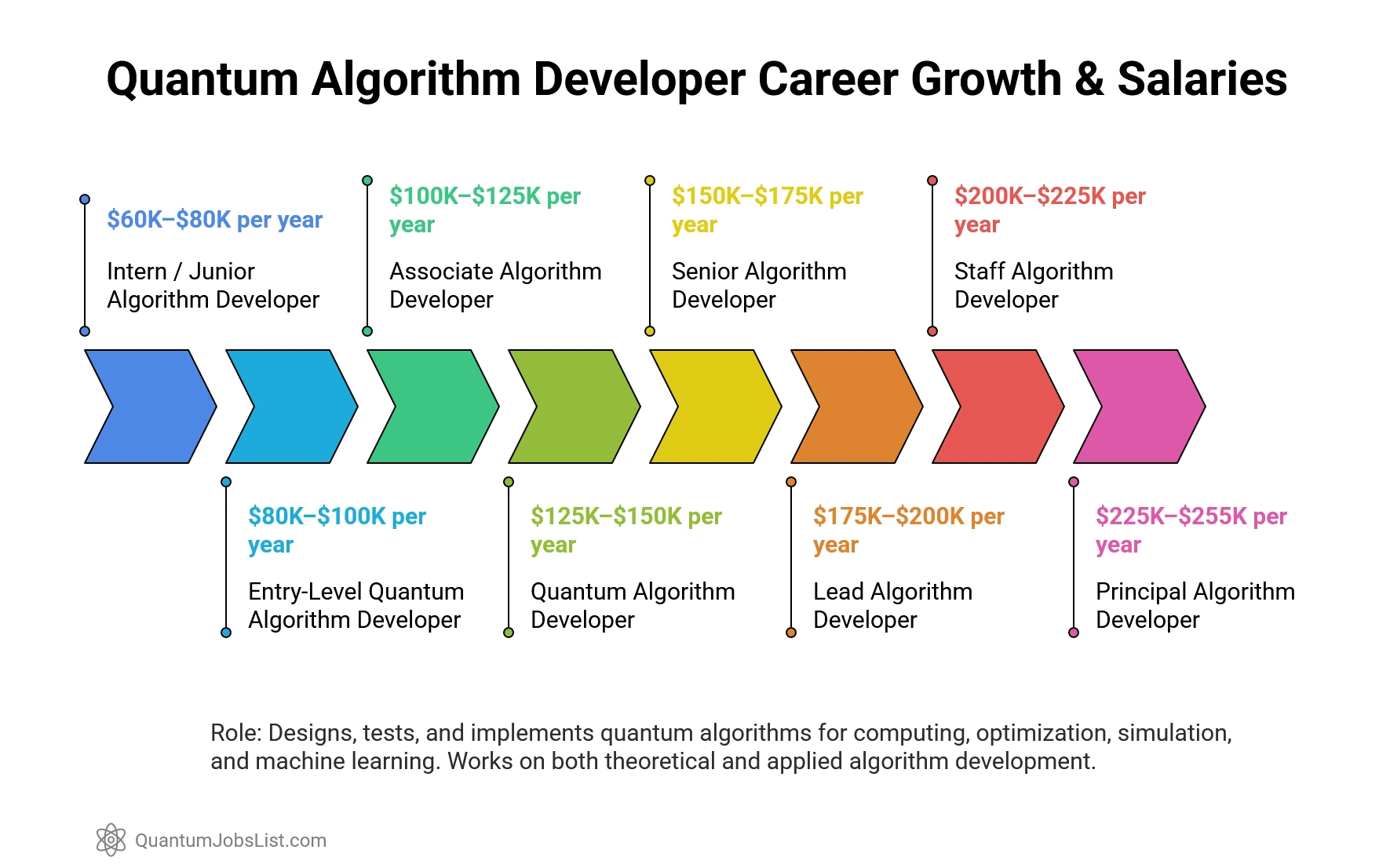These developers optimize and develop quantum algorithms targeting computational problems that quantum algorithms can solve significantly faster than classical methods. Uses Qiskit, Cirq, or Q# quantum programming frameworks and works on algorithms geared toward optimization, simulation, and cryptography.
As quantum algorithm developers, with industry reports predicting that demand for their services will increase around 45% by 2030. These professionals will make between $70,000 and $145,000, depending on their geographical location and level of experience. There are 3,000 to 4,000 of these professionals. Employers like IBM, Microsoft, Google, and quantum startups located in North America, Asia, and Europe are becoming more common.

What is the average base salary?
Min. Qualifications
What You Need to Know
What qualifications are needed to become a Quantum Algorithm Developer?
A bachelor's degree in Computer Science, Physics, or Mathematics is good to have. Proficiency in quantum programming languages like Qiskit, Cirq, or Q# and strong linear algebra skills are preferable.
What is the average salary for a Quantum Algorithm Developer?
Quantum Algorithm Developers earn $70,000-145,000 a year globally, with American positions averaging $115,000, European roles around €96,000 a year. Remote positions at $110,000 a year.
Is Quantum Algorithm Developer a growing career field?
Yes, positions are projected to grow 45% by 2030, with only 3,000-4,000 professionals worldwide currently. This is making it one of the fastest-growing tech careers with high demand.
What does a Quantum Algorithm Developer do?
A Quantum Algorithm Developer creates efficient quantum programs that solve problems like: drug discovery, financial modeling, and cryptography faster than classical computers using specialized programming languages.
More Quantum Job Salaries
Cryogenic Engineer (Quantum Systems)
Builds ultra-low temperature systems for quantum hardware, earning $90,000-$185,000+.

Quantum Control Engineer
Designs and tunes quantum hardware control systems, earning $95,000-$190,000+.

Quantum DevOps Engineer
Manages quantum infrastructure and pipelines, earning $90,000-$180,000+.

Quantum Solutions Architect
Designs enterprise-ready quantum systems, earning $100,000-$210,000+.

Quantum Product Manager
Leads quantum product vision and delivery, earning $100,000-$220,000+.

Quantum Technical Writer
Creates documentation, and technical content for quantum computing products and research.


.svg)
.svg)

